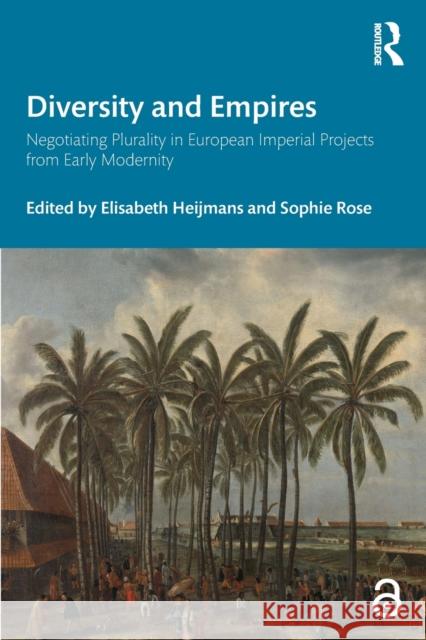Diversity and Empires: Negotiating Plurality in European Imperial Projects from Early Modernity » książka
Diversity and Empires: Negotiating Plurality in European Imperial Projects from Early Modernity
ISBN-13: 9781032325859 / Angielski
Diversity and Empires: Negotiating Plurality in European Imperial Projects from Early Modernity
ISBN-13: 9781032325859 / Angielski
(netto: 186,53 VAT: 5%)
Najniższa cena z 30 dni: 186,33
ok. 16-18 dni roboczych.
Darmowa dostawa!
Examining diversity as a fundamental reality of empire, this book explores European colonial empires, both terrestrial and maritime, to show how they addressed the questions of how to manage diversity.
Examining diversity as a fundamental reality of empire, this book explores European colonial empires, both terrestrial and maritime, to show how they addressed the questions of how to manage diversity.
These questions range from the local to the supra-regional, and from the management of people to that of political and judicial systems. Taking an intersectional approach incorporating categories such as race, religion, subjecthood, and social and legal status, the contributions of the volume show how old and new modes of creating social difference took shape in an increasingly globalized early modern world, and what contemporary legacies these ‘diversity formations’ left behind. This volume shows diversity and imperial projects to be both contentious and mutually constitutive: on the one hand, the conditions of empire created divisions between people through official categorizations (such as racial classifications and designations of subjecthood) and through discriminately applied extractive policies, from taxation to slavery. On the other hand, imperial subjects, communities, and polities within and adjacent to the empire asserted themselves through a diverse range of affiliations and identities that challenged any notion of a unilateral, universal imperial authority.
This book highlights the multidimensionality and interconnectedness of diversity in imperial settings and will be useful reading to students and scholars of the history of colonial empires, global history, and race.











